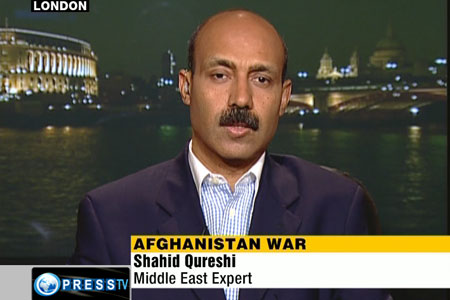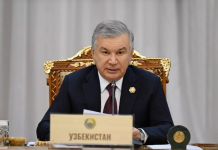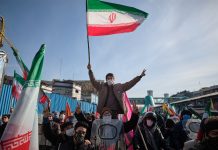Interview with Dr Shahid Qureshi, writer and journalist, from London
“Change is necessary in the current environment since the number of member states has increased, and the power balance is also shifting from the West to the East.”
Leader of the Islamic Revolution Ayatollah Seyyed Ali Khamenei has underlined the importance of making use of the Non-Aligned Movement (NAM)’s potentials to prevent bullying powers from exerting pressure on independent countries. The Leader added that the NAM provides very good capacity for cooperation among its member states in different fields.
Iran assumed the rotating presidency of the NAM for a three-year term during the 16th NAM Summit.NAM is an international organization with 120 member states that is not formally aligned with or against any major power bloc.
Press TV has conducted an interview with Shahid Qureshi, a writer and journalist, from London, to further discuss the issue.
The program also offers the opinions of two additional guests: William Beeman, a professor at the University of Minnesota, from Minneapolis, and Ken Stone, with ‘Hamilton Coalition to Stop the War’, from Toronto. The following is a rough transcription of the interview with Qureshi.
Press TV: The UN Security Council gave itself the right to veto back in 1945. Do you believe the spheres of power have shifted enough to put pressure on these nations to change?
Dr Qureshi: Well, of course the change is necessary in the current environment since the number of member states has increased, and the power balance is also shifting from the West to the East.
It is really not, sort of, fair that a country having a vast majority of the world’s population are not being represented in the UN Security Council as the other member states who have veto power. That’s become like an exclusive gentlemen’s club, which needs to change.
Press TV: In your perspective, what has to happen for NAM to be able to become what, in its final statement in Tehran, it says it wants to become? For example, it says an organization based on peace, cooperation, equality and prosperity.
Dr Qureshi: As your previous speaker mentioned about the bipolar world and the unipolar world, I think what seems to have happened is there are four pillars emerging in the future: Europe, China, Russia and the Muslim bloc.
The Muslim bloc fears that if any kind of movement or any kind of something which these three blocs can get together against the fourth one, which is the Muslim bloc… then there is a problem.
But if Europe stays neutral, and China stays with the Muslims, then the world will stay calm and peaceful.
If there’s any kind of design which some analysts have said is in the making, it will turn the three blocs which I just mentioned – Europe, the United States, Russia and China – and it will pit them against the Muslims, that the Muslims are their enemies. That is not the case.
If you keep the economic perspective in mind, how economic stability and prosperity can bring peace to the region, that will bring further change. For example, in the Middle East, the wealth should be shared with the people; the differences between the Middle East countries, i.e. Iran, Saudi Arabia, must be settled as soon as possible on political grounds not on religious grounds.
That could be the way forward which will bring peace and prosperity not only in Europe but also the ailing economies in Europe at the moment.
As your speaker quite rightly said, Germany is the only economy in Europe which is not having problems like the other economies are having, and Germany doesn’t have the veto power in the United Nations. Surely, Germany has a better and bigger role to play in world politics, and that role should be acknowledged and recognized.
Press TV: What about that… time for a change… Do you think that the large participation that we saw in the Tehran summit, and also, for example, UN Secretary General Ban Ki-moon, even though he was definitely told by several countries not to come, the large participation and also him being here, is this a sign of change on the horizon?
Dr Qureshi: That is a right step in the direction. As your previous speaker has mentioned, the NAM member countries need to settle down their differences and their problems.
For example, India has problems with Pakistan in Kashmir. They have problems with Bangladesh. They have problems with Bhutan and Nepal. India’s a big country and it needs to sort out its border disputes. The Kashmiri problem is another issue.
Similarly, Afghanistan has been invaded by the forces at the moment which is going to be leaving Afghanistan soon. That country needs a lot of reconstruction.
Similarly, Iran… it can play a major role in resolving Kashmiri disputes by asking India, a big country, to resolve all these issues.
Similarly, China; if these issues are resolved, then we can see a bright future on the economic front, on the political front and on a big military bloc if needed in the future.
But I don’t think that would be the case.
Similarly, in the Middle East, the policy of hypocrisy must stop as people are more aware of what’s going on, and human life must be respected. Human beings must be respected. Human beings should be treated equally and fairly, whatever colour, religion or race they belong to.
These proxy wars against countries must stop. These drone attacks which are a violation of sovereignty of Pakistan and other countries they must stop as well because they’re not…
Press TV: Mr. Qureshi, let me just jump in here because you’ve made a couple of different points, for example you talked about the unity that they need to have, various countries, and also you talked about the proxy wars.
If, basically, the NATO forces or those Security Council members are the ones that are behind a lot of this division and wars in the area, isn’t it more likely then that these NAM countries can come together, even more so, when they realize that they’re being played as pawns in the game of these Security Council wielding, veto-wielding nations?
Dr Qureshi: That’s a very good question. That is where it is leading now because these actions must stop. The world has enough. When the world has enough, the emerging power in South America and, as I mentioned, problems in the Indian subcontinent, if those issues are resolved and the countries stick together — for example the Chinese have a trade balance with India which is over 70 billion dollars, and similarly they have trade, border and good-friend relations with Pakistan and Iran, these are the countries…
Live Broadcast on – Sat Sep 1, 2012 7:40AM GMT






